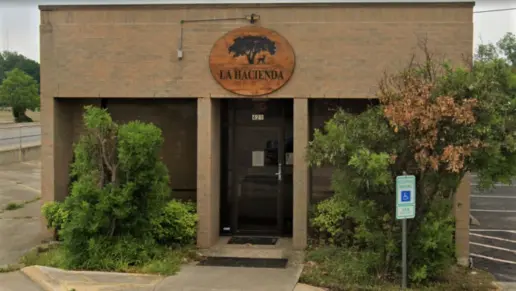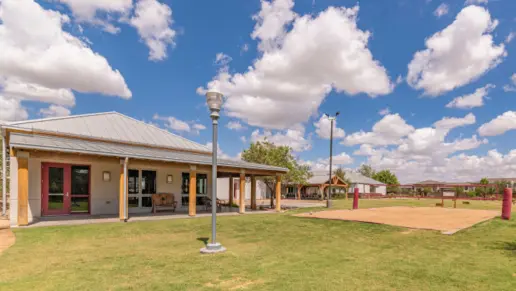About West Texas Counseling and Rehabilitation Program
West Texas Counseling and Rehabilitation Programs (WTCR) has 10 locations across Texas, including the one on South Irving Place in San Angelo. The WTCR is accredited by The Joint Commission and they treat opioid use disorder and dual diagnosis.
Many people with opioid use disorder have co-occurring mental health issues. It’s as important to treat your mental health issues as your substance use disorder. It’s usually underlying issues such as anxiety, depression, bipolar disorder, or schizophrenia that drive you to use drugs in the first place.
You may have had a bad injury and ended up with chemical dependency from taking doctor-prescribed pain medicine. Whatever the trigger, it’s important to get that figured out so you can learn better ways of coping with your pain, be it physical or emotional.
If you’re worried about how to pay for treatment, the center takes Medicare and Medicaid. They also accept many types of insurance coverage. If you’re uninsured, you may qualify for financial assistance or even free treatment that’s offered by some state assistance programs.
The program uses evidence-based treatment to help you wean from the opioids. The treatments include methadone and buprenorphine. This is called opiate agonist therapy (OAT) and reduces your body’s craving for opioids while preventing withdrawal symptoms. OAT allows you to get back to your life because you won’t feel the need to use opiates. Because OAT uses long acting drugs, you won’t feel high either.
While in the program, you’ll have counseling to help you understand the triggers causing your opiate use. You’ll work on restructuring your thinking so you can change your behaviors. You’ll meet with licensed counselors as you work through your written treatment plan.
At some point, you may have a medically supervised withdrawal from your OAT therapy. However, many people stay on treatment lifelong. That’s something you’ll decide with your doctor and counselor.
Latest Reviews
Rehab Score
Other Forms of Payment
Self-pay involves paying for treatment out of your own pocket. You can use savings or credit, get a personal loan, or receive help from family and friends to fund your treatment. If you don't have insurance or your insurance plan doesn't cover a specific program, self-pay can help ensure you still get the care you need.
Medicaid is a state based program that helps lower-income individuals and families pay for healthcare. Medicaid covers addiction treatment so those enrolled can use their coverage to pay for rehab. When a program accepts Medicaid the client often pays very little or nothing out of their own pocket.
Medicare is a federal program that provides health insurance for those 65 and older. It also serves people under 65 with chronic and disabling health challenges. To use Medicare for addiction treatment you need to find a program that accepts Medicare and is in network with your plan. Out of pocket costs and preauthorization requirements vary, so always check with your provider.
Addiction Treatments
Levels of Care
Treatments
The goal of treatment for alcoholism is abstinence. Those with poor social support, poor motivation, or psychiatric disorders tend to relapse within a few years of treatment. For these people, success is measured by longer periods of abstinence, reduced use of alcohol, better health, and improved social functioning. Recovery and Maintenance are usually based on 12 step programs and AA meetings.
During rehab in Texas, you'll deal with underlying issues that contribute to addiction. By addressing these challenges and learning healthy ways to cope with them, you'll develop strategies that help you live a drug-free lifestyle.
Opioid rehabs specialize in supporting those recovering from opioid addiction. They treat those suffering from addiction to illegal opioids like heroin, as well as prescription drugs like oxycodone. These centers typically combine both physical as well as mental and emotional support to help stop addiction. Physical support often includes medical detox and subsequent medical support (including medication), and mental support includes in-depth therapy to address the underlying causes of addiction.
Substance rehabs focus on helping individuals recover from substance abuse, including alcohol and drug addiction (both illegal and prescription drugs). They often include the opportunity to engage in both individual as well as group therapy.
Programs


Clinical Services
Group therapy is any therapeutic work that happens in a group (not one-on-one). There are a number of different group therapy modalities, including support groups, experiential therapy, psycho-education, and more. Group therapy involves treatment as well as processing interaction between group members.
Amenities
-
Residential Setting
Contact Information
601 South Irving Place
Suite 4
San Angelo, TX 76903


